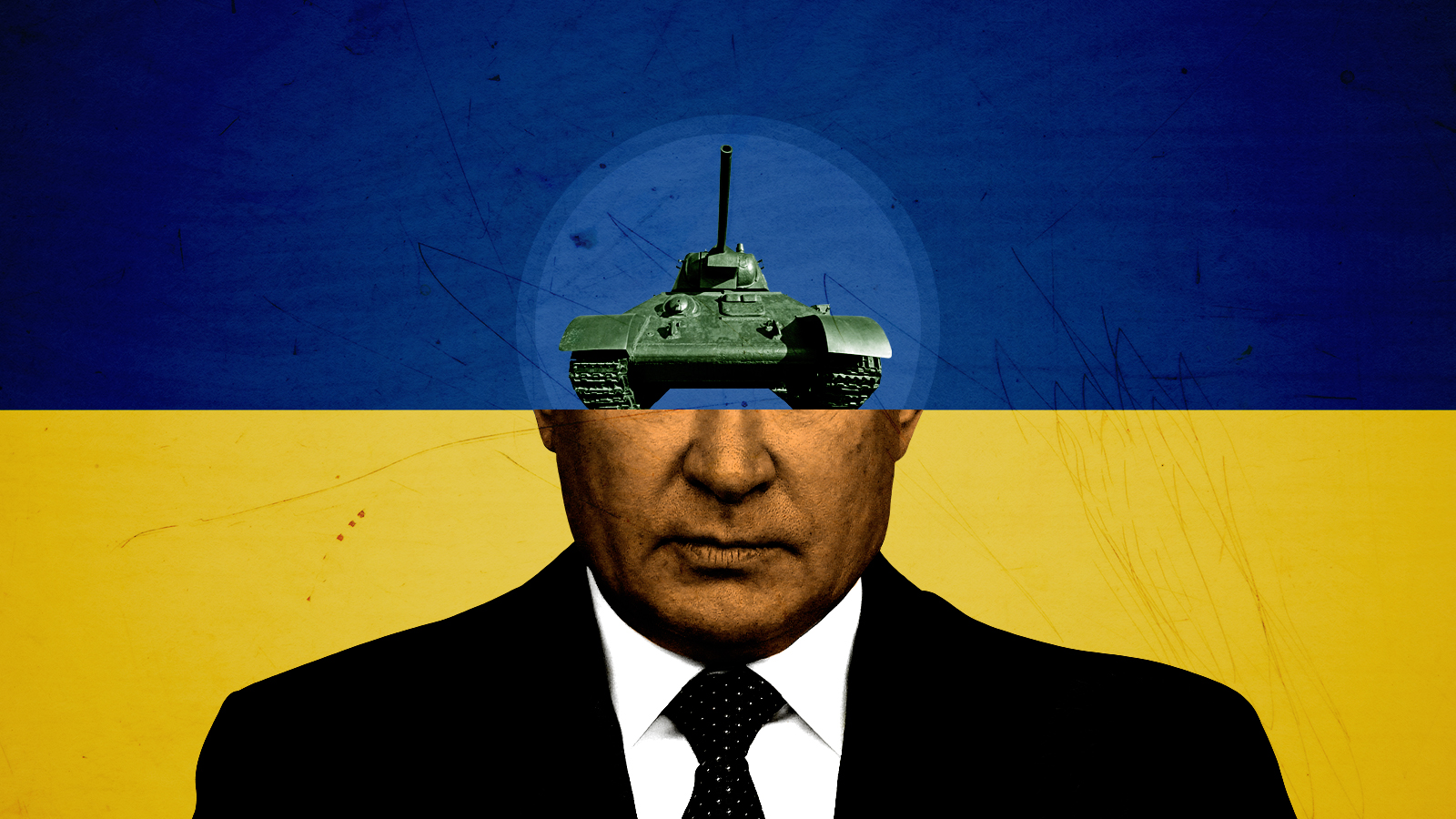How should the U.S. respond to the coming Russian invasion of Ukraine?


A free daily email with the biggest news stories of the day – and the best features from TheWeek.com
You are now subscribed
Your newsletter sign-up was successful
Before this week, I'd never heard of Dmitri Alperovitch or Silverado Policy Accelerator, the nonprofit think tank for which he is co-founder and chair. But Alperovitch is on my radar now, thanks to a viral tweet thread about Russia's intentions in Ukraine that is at once smart, highly informed, and chilling.
Alperovitch's core assertion is simple: The Kremlin has already "made a decision to invade Ukraine later this winter." The evidence he marshals in defense of this claim is overwhelming. Alperovitch points to Russia's massive troop deployment to the Ukraine border, increased acts of cyber intrusion into Ukraine, the issuing of diplomatic ultimatums and public demands that would be extremely difficult to walk back, and several other recent moves on Russia's part.
He then pivots to listing the reasons he thinks Russian President Vladimir Putin has decided on this bellicose course of action. These range from internal conflicts within Ukraine that threaten Russian interests to longstanding concerns about NATO expansion into Russia's near abroad, which the Kremlin considers a serious danger, to the waning effectiveness of economic sanctions from the West as a deterrent. All of it builds to a prediction: Putin "is unlikely to invade western Ukraine but can relatively easily split the country in half along the Dnieper [River] and establish a permanent buffer zone between Europe and Russia, as well as a land bridge to Crimea."
The Week
Escape your echo chamber. Get the facts behind the news, plus analysis from multiple perspectives.

Sign up for The Week's Free Newsletters
From our morning news briefing to a weekly Good News Newsletter, get the best of The Week delivered directly to your inbox.
From our morning news briefing to a weekly Good News Newsletter, get the best of The Week delivered directly to your inbox.
Since we're making predictions, I'll propose my own: If Alperovitch is right and Putin launches an invasion of Ukraine, the United States and NATO will raise rhetorical hell about it from Washington and Brussels, but they will do nothing to stop it militarily. And that, as Alperovitch points out, "would put a permanent end to all talk of Ukraine, Georgia, Belarus, or any Central Asian states of ever joining NATO."
Since I think America's finite attention and resources should be focused on the vastly greater threat of an ascendant China, such a scenario doesn't directly alarm me. But how would a dramatic American capitulation to Russian ambitions in its near abroad affect our ability to contain China's ambitions in its near abroad, especially in Taiwan? Might Beijing conclude we'd respond with similar passivity to an invasion of the island? And could such a calculation on China's part bring about the very scenario American policy in the region is intended to prevent?
In this respect, a Russian invasion of Ukraine would propel the United States and the world into an era of geopolitical risk unlike any we've seen in several decades. And if Alperovitch is correct, that era may poised to begin in a matter of weeks.
A free daily email with the biggest news stories of the day – and the best features from TheWeek.com
Damon Linker is a senior correspondent at TheWeek.com. He is also a former contributing editor at The New Republic and the author of The Theocons and The Religious Test.
-
 The ‘ravenous’ demand for Cornish minerals
The ‘ravenous’ demand for Cornish mineralsUnder the Radar Growing need for critical minerals to power tech has intensified ‘appetite’ for lithium, which could be a ‘huge boon’ for local economy
-
 Why are election experts taking Trump’s midterm threats seriously?
Why are election experts taking Trump’s midterm threats seriously?IN THE SPOTLIGHT As the president muses about polling place deployments and a centralized electoral system aimed at one-party control, lawmakers are taking this administration at its word
-
 ‘Restaurateurs have become millionaires’
‘Restaurateurs have become millionaires’Instant Opinion Opinion, comment and editorials of the day
-
 What is ‘Arctic Sentry’ and will it deter Russia and China?
What is ‘Arctic Sentry’ and will it deter Russia and China?Today’s Big Question Nato considers joint operation and intelligence sharing in Arctic region, in face of Trump’s threats to seize Greenland for ‘protection’
-
 What would a UK deployment to Ukraine look like?
What would a UK deployment to Ukraine look like?Today's Big Question Security agreement commits British and French forces in event of ceasefire
-
 Did Trump just end the US-Europe alliance?
Did Trump just end the US-Europe alliance?Today's Big Question New US national security policy drops ‘grenade’ on Europe and should serve as ‘the mother of all wake-up calls’
-
 Is conscription the answer to Europe’s security woes?
Is conscription the answer to Europe’s security woes?Today's Big Question How best to boost troop numbers to deal with Russian threat is ‘prompting fierce and soul-searching debates’
-
 Trump peace deal: an offer Zelenskyy can’t refuse?
Trump peace deal: an offer Zelenskyy can’t refuse?Today’s Big Question ‘Unpalatable’ US plan may strengthen embattled Ukrainian president at home
-
 Vladimir Putin’s ‘nuclear tsunami’ missile
Vladimir Putin’s ‘nuclear tsunami’ missileThe Explainer Russian president has boasted that there is no way to intercept the new weapon
-
 The Baltic ‘bog belt’ plan to protect Europe from Russia
The Baltic ‘bog belt’ plan to protect Europe from RussiaUnder the Radar Reviving lost wetland on Nato’s eastern flank would fuse ‘two European priorities that increasingly compete for attention and funding: defence and climate’
-
 How should Nato respond to Putin’s incursions?
How should Nato respond to Putin’s incursions?Today’s big question Russia has breached Nato airspace regularly this month, and nations are primed to respond
